THE LAST OF US – Season One
After a global pandemic destroys civilisation, a hardened survivor takes charge of a 14-year-old girl who may be humanity's last hope.
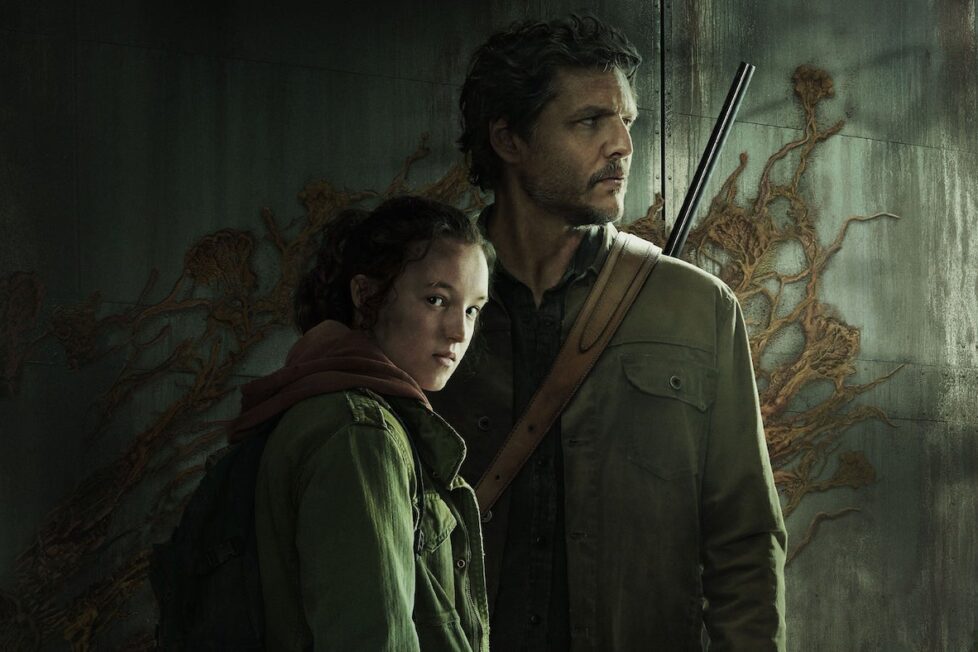
After a global pandemic destroys civilisation, a hardened survivor takes charge of a 14-year-old girl who may be humanity's last hope.


Video games don’t translate well to live-action. That statement’s become accepted wisdom because the failures (Street Fighter, Super Mario Bros.) are more notorious than the successes (Sonic the Hedgehog, Castlevania). But with signs audience’s love affair with comic-book adaptations is starting to wane, perhaps the next wellspring for Hollywood is games already intended to feel cinematic.
The Last of Us was a best-selling 2013 video game from Naughty Dog that played like an interactive post-apocalyptic movie. And while it was heavily inspired by various sci-i and zombie horror films, the game had enough of a unique vibe and interesting lore to pique the interest of film studios. A proposed feature film got stuck in development for many years, with Sam Raimi (The Evil Dead) once close to directing, until HBO ushered the project to television instead…
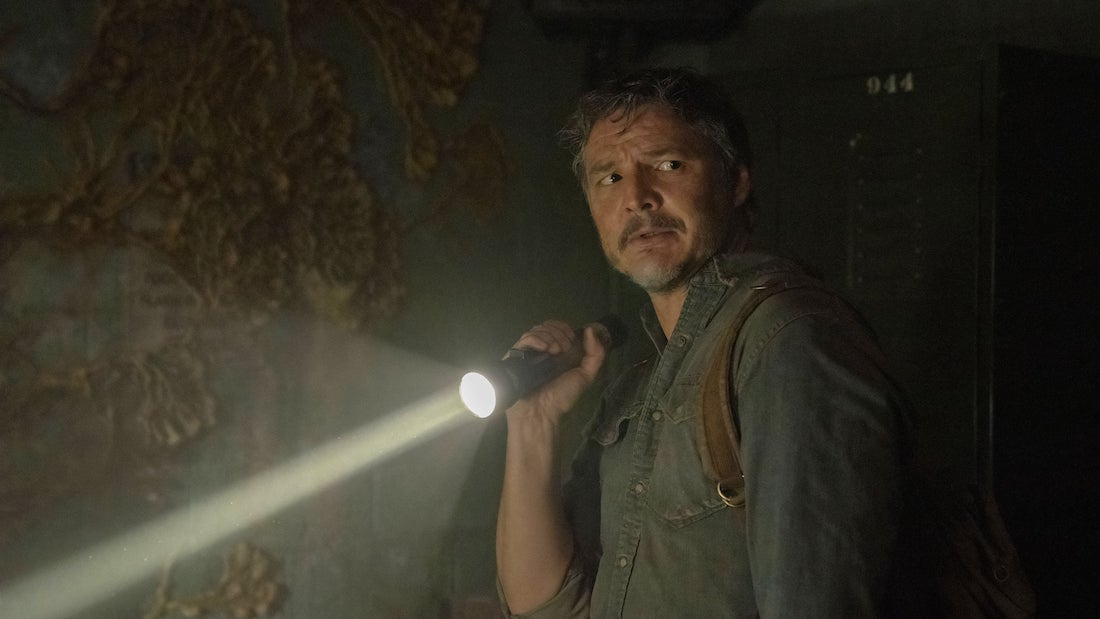
Joel (Pedro Pascal) is a middle-aged survivor of a pandemic that engulfed human civilisation and is still grieving the loss of his teenage daughter Sarah (Nico Parker) on the chaotic night the outbreak reached his town. 20 years later, jaded Joel reluctantly agrees to escort a young girl called Ellie (Bella Ramsey) across the country to a medical facility, after being told she’s seemingly immune to the fungal disease that’s been transforming people into violent zombies once bitten.
The setup isn’t unique. The video game itself wasn’t breaking new ground when it arrived on the scene (three seasons into The Walking Dead’s long run), but its greatness came from the focus on characterisation and how emotionally grounded everything felt. The science behind the zombies also had its allure being it’s based on the real-life cordyceps fungus that’s evolved to infect ants and drain them of nutrients while hijacking their minds to make them behave in a manner that benefits its own spread. Lifting that creepy idea out of the insect world onto the global stage, making mankind the ants, is a frightening prospect that also adds scientific credibility to the often poorly explained concept of corpses coming back to life; which at best involve escaped man-made viruses (Resident Evil) or spilt radioactive material (The Return of the Living Dead).
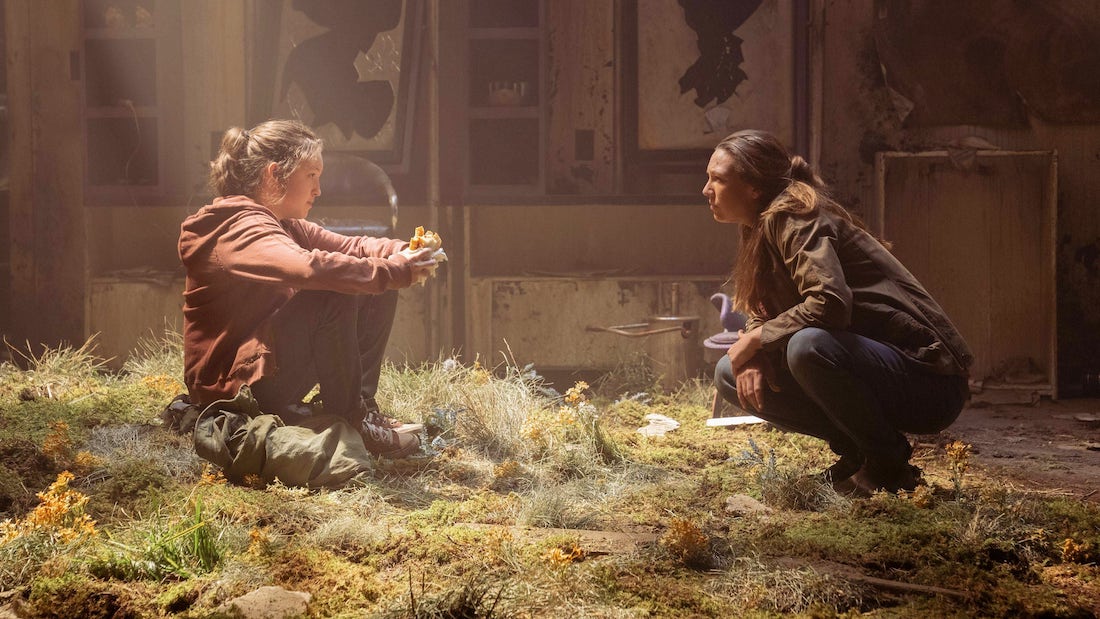
Developed by writer Craig Mazin (Chernobyl) in partnership with the game’s own creator Neil Druckman, The Last of Us avoids many of the pitfalls stories of this nature can wander into. It’s not primarily about fungal zombies chasing humans across an apocalyptic wasteland of collapsed buildings and vine-strewn streets, it’s more about ordinary people dealing with unimaginable loss and personal grief. It’s about how people can somehow keep going and find moments of connection and love that make the hell they’re going through somewhat bearable, if only for a moment, or worth fighting another day for.
The episodic nature of The Last of Us mirrors the game’s stream of missions, similarly introducing us to a variety of characters who tend not to last long. But the beauty of this adaptation is how it improves upon the ideas and uses the advantages of a long-form narrative (without having to segue into action and stealth-oriented gameplay) to flesh out the world better.
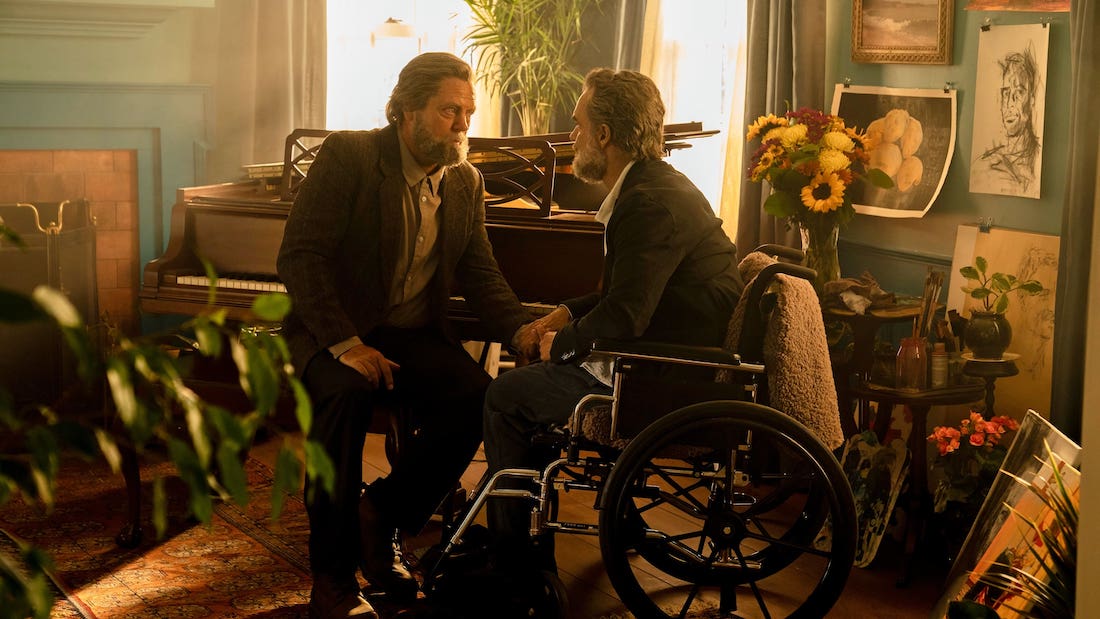
The greatest example of this comes as early as episode 3, “Long, Long Time”, which takes a relatively minor character in the game called Bill (Nick Offerman) and gifts him a deeper backstory that covers a few decades of time. Joel and Ellie barely feature and it’s an unexpectedly early departure from formula to instead focus on a gay love story about a selfish survivalist who learns to be himself and finds love with a man called Frank (Murray Bartlett) to create a sanctuary together despite the horrors happening beyond their fenced-off home. It’s rare for a new series to almost casually deliver a masterpiece so early in its run, but this hour of television is a remarkable achievement.
The rest of the series doesn’t again reach episode 3’s creative peak, but the quality remains high throughout. It helps that the show can focus on developing the bond between Joel and Ellie, without having to serve the kind of large ensemble one expects to see in sci-fi dramas of this nature, like The Walking Dead (2010-2022). But it’s not easy to introduce new characters every episode and tell hour-long stories that feel so deep and emotionally rewarding—from the relentless pursuit of a revolutionary leader called Kathleen (Melanie Lynskey), to a collaborating father called Henry (Lamar Johnson) trying to keep his deaf son Sam (Keivonn Montreal Woodard) safe from harm, a flashback explaining Ellie’s first experience with love and grief with her friend Riley (Storm Reid) inside an abandoned mall, and the discovery of a commune that’s survived harsh winters by eating human flesh secretly provided by their religious leader David (Scott Shepherd).
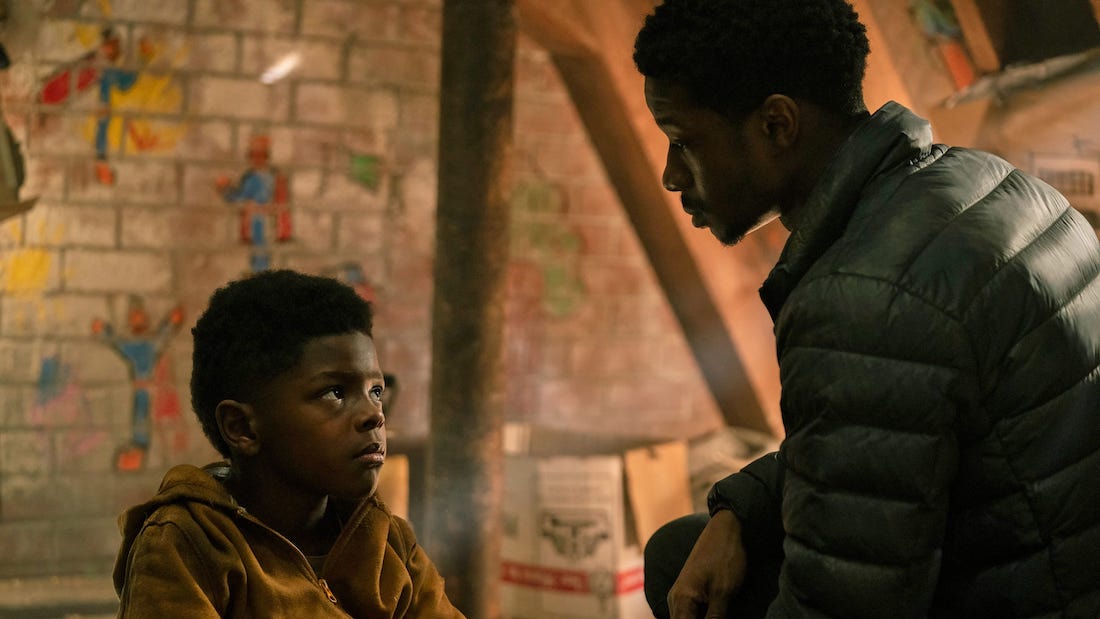
Of course, Pedro Pascal (The Mandalorian) and Bella Ramsey (Game of Thrones) are the real standouts and both deliver excellent performances. The casting of Joel and Ellie is essential and thankfully their chemistry works a treat, with Pascal carving a niche when it comes to characters sworn to protect those smaller and physically weaker than himself (even his Prince Oberon in Game of Thrones echoes that after agreeing to be dwarf Tyrion’s champion in a duel to the death). Ramsey was a memorably wise-beyond-her-years presence on the same show in its latter seasons, and in The Last of Us she’s believably spirited and rough as Ellie.
It’s also fascinating to see what a teenage girl would be like having grown up without 24/7 entertainment and any of the social trappings we associated with kids, to instead wander around in a kind of existential limbo amongst the ruins of a world that was once so vibrant and exciting. Seeing Joel and Ellie slowly warm to each other and let their defences down is a rewarding arc to the first season.
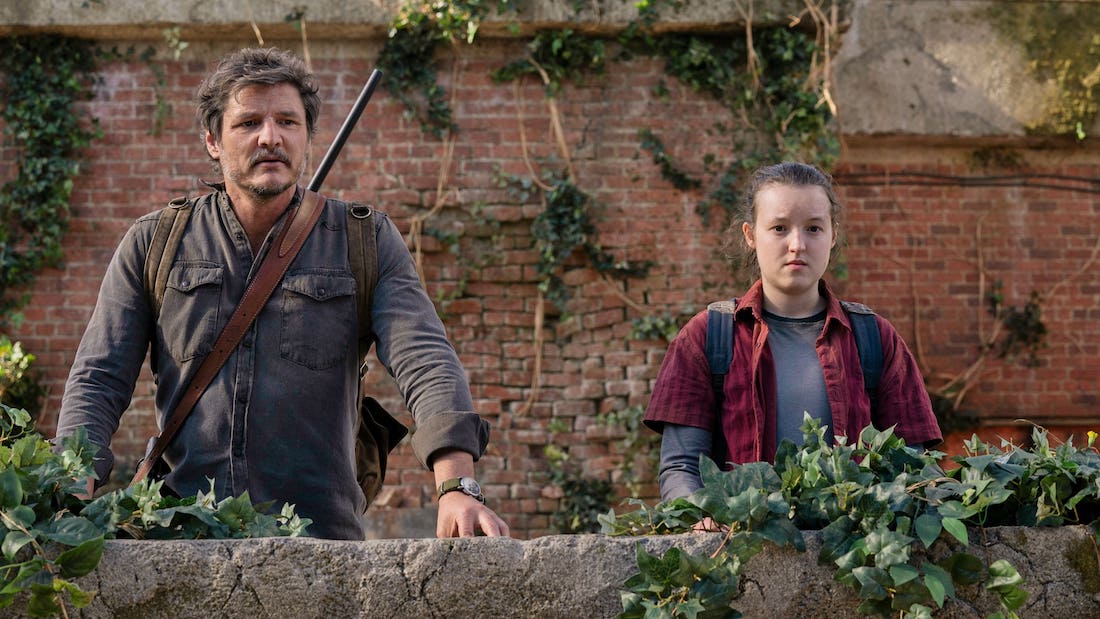
One criticism of this first season is the unexpected lack of zombies; the show only re-stages one set-piece from the games (avoiding a ‘Clicker’ around a small museum), and there’s only one large-scale sequence of horror where a swarm of infected people attack a crowd of survivors. Beyond the occasional encounter with a zombie or two, The Last of Us is more interested in what society’s become as a result of this apocalypse. This is often the way for such stories, but rarely to this extent, which goes to show how confident the writers were that they didn’t need constant zombie-slaying action to keep people watching. There’s a fair argument in saying the season would have only benefitted from a little more fungal zombie mayhem (which is a bigger part of the game), but I enjoyed having the stories treat its zombies as occasional highlights rather than monsters that quickly become boring to see.
Overall, The Last of Us overcame the myth that video games don’t make good films or TV shows, despite also being centred around a doomsday plague that inevitably plays differently to viewers who’ve just gone through a real pandemic. Are we ready to have fun with lethal virus stories again? It appears so, and that’s primarily down to a welcome focus on sharp storytelling, fantastic performances, amazing production values, and writers who understand that zombie stories are never really about the zombies.
CANADA • USA | 2023 | 9 EPISODES | 1.78:1 | COLOUR | ENGLISH

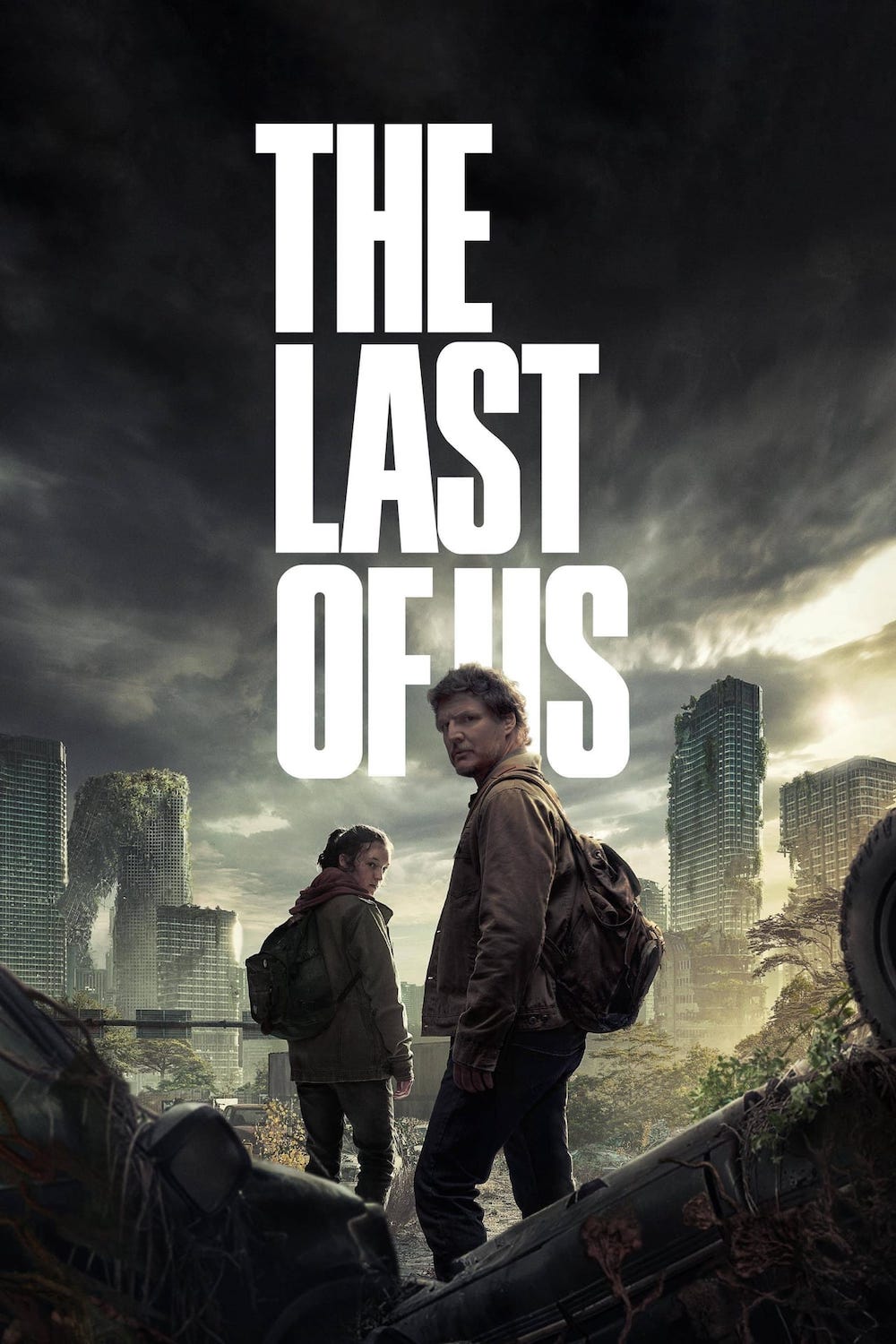
writers: Craig Mazin & Neil Druckman.
directors: Craig Mazin, Neil Druckman, Peter Hoar, Jeremy Webb, Jasmila Žbanić, Liza Johnson & Ali Abbasi
starring: Pedro Pascal, Bella Ramsey, Merle Dandridge, Anna Torv, Gabriel Luna, Nick Offerman, Murray Bartlett, Lamar Johnson, Melanie Lynskey, Jeffrey Pierce, Rutina Wesley, Graham Greene, Storm Reid, Scott Shepherd, Troy Baker & Ashley Johnson.
